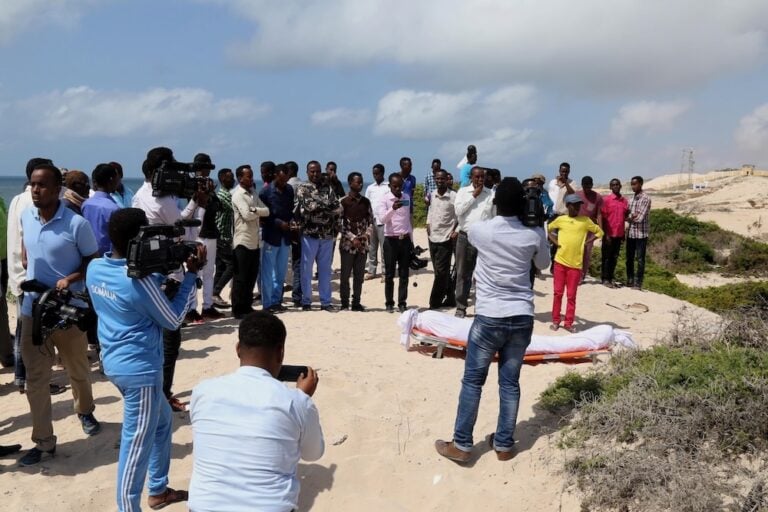According to Mohamed Aweys Mudey's family, the journalist was sentenced to 27 years in prison in the last week of February 2014, under Ethiopia's anti-terror law. He did not have a lawyer or family member with him during his trial.
On 10 March 2014, the National Union of Somali Journalists (NUSOJ) condemned the guilty verdict and prison sentence against veteran Somali journalist Mohamed Aweys Mudey as “outrageous and unacceptable”, and urged Ethiopian authorities to release him immediately and unconditionally.
According to Mohamed Aweys Mudey’s family, the journalist was sentenced to 27 years in prison in the last week of February 2014, under Ethiopia’s anti-terror law. He did not have a lawyer or family member with him during his trial. At least three people detained with Mudey at Ethiopia’s Crimes Investigations Sector (CIS) – widely known Makalawi – saw Mudey badly tortured and having difficulty walking. He was later moved to a secret place. Ethiopian prosecutors reportedly accused Mudey of having information about Al-Shabaab operations in Ethiopia and charged him with participating in terror activities.
“This is a very severe ruling because Mohamed Aweys Mudey is not guilty of anything. The charges against him are ludicrous. We firmly condemn the continued detention of Mudey, and call for his immediate release,” said Omar Faruk Osman, NUSOJ Secretary General
Mohamed Aweys Mudey – who is also known as Boqorka Bartamaha – fled to Ethiopia for safety reasons after he was wounded at an Al-Shabaab suicide bombing at Shamo Hotel in Mogadishu on 3 December 2009. The bombing killed at least 25 people, including three journalists. Mudey, 48, was among some 100 Somalis arrested in November 2013 under the suspicion of a terror attack in Addis Ababa.
Filing reports for different media houses from Addis Ababa when there were important events concerning Somalia, Mudey used to work for number of media houses in Mogadishu, namely Radio Shabelle and Radio Banadir.


